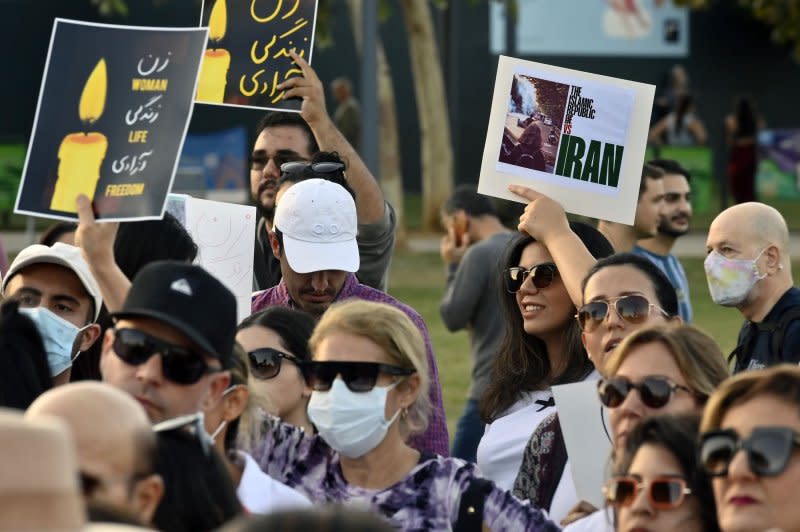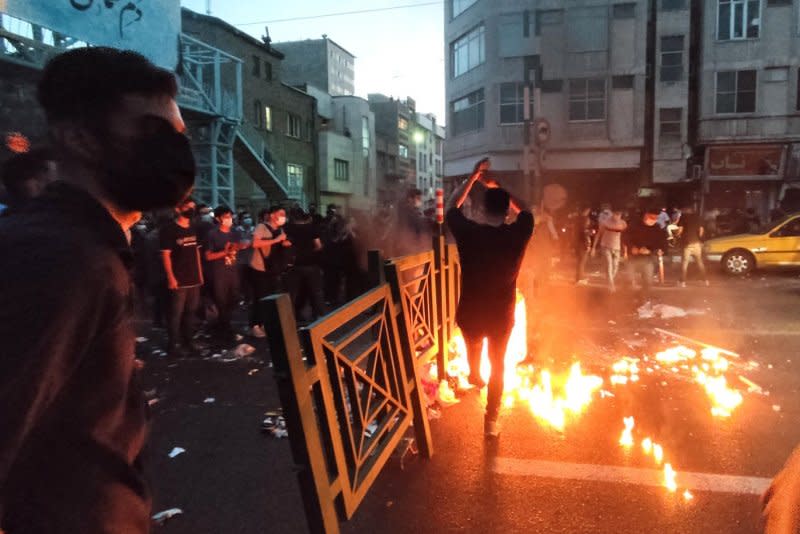Proposed Iranian law carries 10-year prison sentence for dress-code violation

Sept. 21 (UPI) -- The Iranian legislature has approved a bill that could see people who defy the country's religious dress code face up to 10 years in prison.
Iran's oversight body, the Guardian Council, would have to approve the bill before it can be implemented as law.
The bill, which forbids women from wearing "revealing or tight clothing, or clothing that shows parts of the body lower than the neck or above the ankles or above the forearms," passed the legislature 152 to 34 Wednesday.
Men are banned from wearing "revealing clothing that shows parts of the body lower than the chest or above the ankles or shoulders," by the new proposed law.
The bill lays out penalties for violations ranging from fines to 10 years imprisonment, and it has specific provisions related to celebrities.

The legislation is intended to be implemented on a trial basis for three years if it is approved by the Guardian Council, which, as an executive body, has veto power over legislative decisions.
Jamileh Alamolhoda, the wife of Iranian President Ebrahim Raisi, defended the strict dress codes in an interview with ABC's This Week.
"You have dress codes everywhere, even here in university environments, in schools and everywhere else. And I need to tell you that hijab was a tradition, was a religiously mandated tradition, accepted widely. And now for years, it has been turned into a law," Alamolhoda told ABC's Martha Raddatz.
The new dress-code proposal comes shortly after the one-year anniversary of the killing of Mahsa Amini, a 22-year-old Iranian-Kurdish woman who died in custody after being detained by the nation's morality police for violating strict religious dress codes.
The death prompted nationwide protests and a subsequent government crackdown that resulted in hundreds of deaths and thousands of arrests.
Iranian women have taken to posting images of themselves taking off their hijabs as a form of protest against the government, leading the authorities to say there would use surveillance technology to identify people violating dress codes.
The 2022 State Department Report on International Religious Freedom found that Iran was engaged in religious repression.

